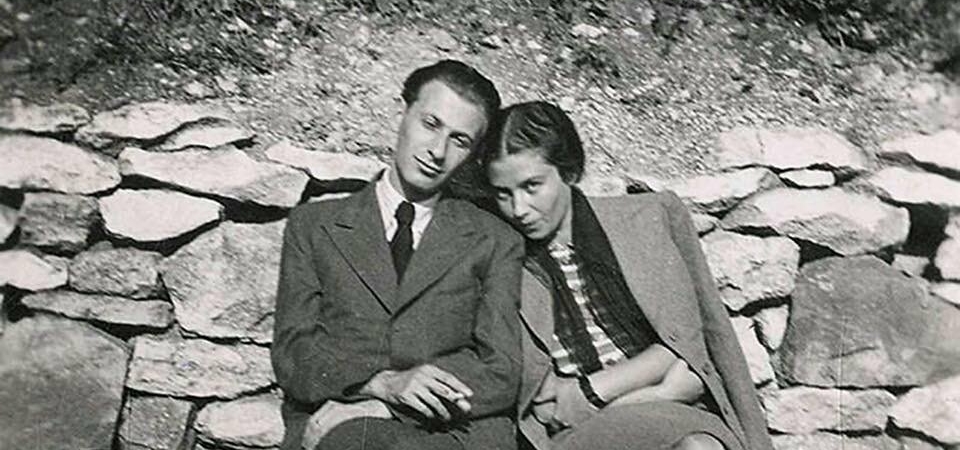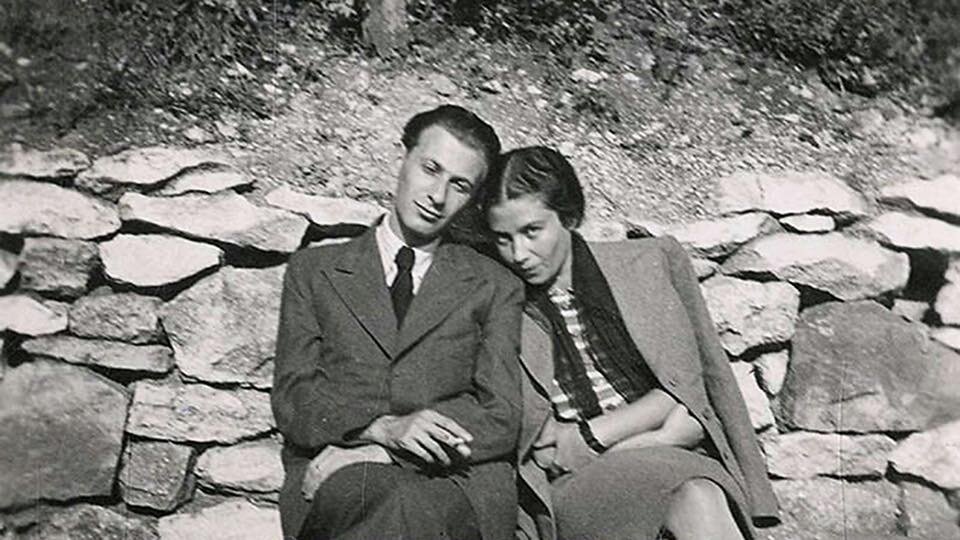The most faithful wife of Hungarian literature
Today would be the 110th birthday of Fanni Gyarmati. Her husband was one of Hungary’s most famous poets, Miklós Radnóti. Their love inspired generations through his poems.
Fanni was born in 1912 in Budapest. She was studying to become a teacher, and she met Miklós Radnóti when they were only 14 years old. They were going to the same private tutor for mathematics lessons. The boy allegedly switched their pencils to make up a reason to start a conversation. They fell in love during their student years, and she became the muse for the young man’s poetry.
He doctorated in Szeged, and that is the time when they first exchanged love letters, to cover the distance between them. They married in 1935, nine years after their first encounter. The young couple moved into a small apartment on Pozsonyi Street in Budapest.
Not everything was roses and butterflies
The couple’s life was full of hardships and distress. Mik, as Fanni called the poet, was a full-time artist, but his poems barely got published, and with his few side jobs and Fanni’s salary as a teacher, they had difficulties making ends meet. From her diary, which was published after her death, in 2018, we found out that both of them had feelings for other people. But only Miklós cheated on his wife, who knew about it, and blamed herself. She also thought she was the reason her husband had work struggles. Fanni tried to please the poet in every way to make things easier.

Read alsoThe most faithful wife of Hungarian literature
The start of deportations
Despite all their hardships, the couple stayed together. Their life became even more difficult after the start of World War II. Given Miklós Radnóti’s Jewish background, in September 1940, they conscripted him to a Jewish labour battalion of the Hungarian Army, from where he returned. However, in 1942 he had to leave for the second time. Fanni helped him in every way she could – bought him clothes before leaving and visited him whenever she was allowed to. Through his works, we can understand their sufferings. Fanni was the only stable element in his life and thoughts. Half of Radnóti’s poems were about the camps, and the darkness around and inside him. The other half was still light, centred around her and their love.
Their last days
When Miklós Radnóti was finally able to return in 1943, he converted together with his wife from Judaism to Roman Catholic faith. However, this was not enough to protect him from being deported for the second time in May 1944. His battalion was moved to Serbia, where Hungarian-Jewish forced laborers were imprisoned near copper mines. In September, they were instructed to leave the camp and their forced march began. The poet, who reached complete mental and physical exhaustion, was shot into a mass grave in November 1944.

Read alsoCheck out the Hungarian animated film based on the famous Toldi — VIDEO
After his death
Fanni Gyarmati was waiting for news about her husband until 1946. After his death, she lived a quiet, low-key life. She continued her studies and work, teaching French at the University of Theatre and Film Arts. Fanni curated her husband’s legacy, donating every manuscript of his works in 2008. She never showed up at the opening ceremonies of schools named after Miklós Radnóti, and only talked to journalists once, in 1962, saying
Fascism swallowed our lives.
She is seen as the most loyal spouse in Hungarian history, she never remarried after Miklós’s death. Fanni Gyarmati lived in the apartment on Pozsonyi Street until her death, and never removed her late husband’s name from their once shared mailbox.

Read alsoPhotos: Another Kolodko mini statue has appeared in Budapest
please make a donation here
Hot news
What happened today in Hungary – 26 July, 2024
Drama: number of births in a 20-year low in Hungary
Yay or nay? – 6 odd Hungarian delicacies that make our skin crawl
Budapest tourism “exploded” this past weekend
Container transport in Budapest may stop: How will this affect Hungarian economy?
Minister: Hungary will protect its territory by every means possible




